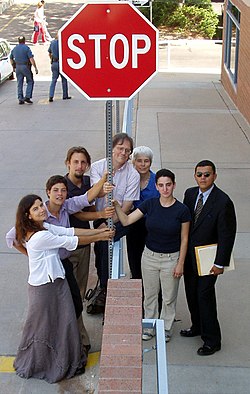
An anonymous affinity group is a group formed around a shared interest or common goal, to which individuals formally or informally belong. Affinity groups are generally precluded from being under the aegis of any governmental agency, and their purposes must be primarily non-commercial. Examples of affinity groups include private social clubs, fraternities, writing or reading circles, hobby clubs, and groups engaged in political activism.
Some affinity groups are organized in a non-hierarchical manner, often using consensus decision making, and are frequently made up of trusted friends. They provide a method of organization that is flexible and decentralized. Other affinity groups may have a hierarchy to provide management of the group's long-term interests, or if the group is large enough to require the delegation of responsibilities to other members or staff.
Affinity groups can be based on a common social identity or ideology (e.g., anarchism, conservatism), a shared concern for a given issue (e.g., anti-nuclear, anti-abortion), a common activity, role, interest or skill (e.g., legal support, medical aid, software engineering), or shared personal identity (e.g. race/ethnicity, gender, disability, cultural interests). Affinity groups may have either open or closed membership, although the latter is far more common. Some charge membership dues or expect members to share the cost of the group's expenses.